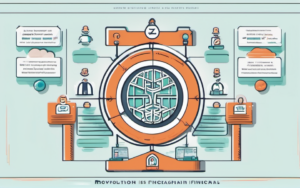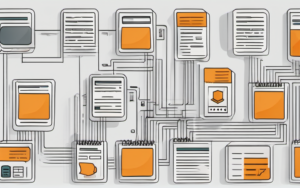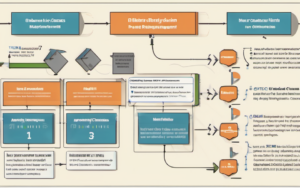You might think of blockchain technology solely in terms of cryptocurrencies like Bitcoin, but its potential extends far beyond the world of digital money. Blockchain uses have the power to revolutionize various industries and aspects of our daily lives in ways you might not expect.
Introduction: Beyond Cryptocurrencies
Blockchain is a distributed ledger technology that allows for secure and transparent recording and sharing of information. This technology has the potential to transform many industries, from healthcare to supply chain management, and even the way we vote.
Supply Chain Management and Transparency
Blockchain’s ability to create an immutable record of events makes it ideal for tracking the journey of goods and products through the supply chain.
Tracking Products from Origin to Consumer
Imagine being able to trace the origin of your coffee beans, from the farm where they were grown to the store where you bought them. Blockchain makes this possible by providing a transparent and auditable trail of every step in the process. This level of transparency can increase trust and accountability within the supply chain, benefiting both consumers and businesses.
Combating Counterfeiting and Fraud
Blockchain can also help combat counterfeiting and fraud by providing a secure and verifiable record of the authenticity of products. This is particularly valuable for industries like pharmaceuticals, luxury goods, and food, where counterfeiting is a major concern.
Healthcare and Medical Records
Blockchain can revolutionize healthcare by creating a secure and tamper-proof system for managing medical records.
Secure and Tamper-Proof Patient Data
Traditional paper-based medical records are prone to errors, loss, and unauthorized access. Blockchain can address these issues by providing a secure and immutable platform for storing and sharing patient data.
Efficiently Sharing Medical Information
Blockchain can also facilitate the efficient sharing of medical information between healthcare providers. This can improve patient care by ensuring that all relevant medical history is readily available to doctors and other healthcare professionals.
Voting Systems and Elections
Blockchain can enhance the security and transparency of voting systems, leading to more fair and trustworthy elections.
Ensuring Secure and Transparent Voting
Traditional voting methods are vulnerable to fraud and manipulation. Blockchain can address these vulnerabilities by providing a secure and tamper-proof platform for recording and verifying votes.
Reducing Fraud and Manipulation
By creating a decentralized and immutable record of votes, blockchain can make it virtually impossible for individuals or groups to tamper with election results. This can increase public trust in the electoral process and ensure that the will of the people is accurately reflected.
Digital Identity and Verification
Blockchain can play a vital role in creating secure and verifiable digital identities, simplifying identity verification processes.
Creating Secure and Verifiable Identities
Digital identities stored on blockchain are tamper-proof and verifiable, reducing the risk of identity theft and fraud. This can be particularly beneficial for online transactions, financial services, and other applications that require secure identity verification.
Simplifying Identity Verification Processes
Blockchain can streamline the identity verification process by eliminating the need for multiple forms of identification and paperwork. This can save time and resources for individuals and businesses alike.
Real Estate and Property Ownership
Blockchain can streamline real estate transactions, improving transparency and security in the process.
Streamlining Property Transactions
Blockchain can automate many aspects of real estate transactions, such as title registration and property transfers. This can reduce the time and cost associated with these transactions, making the process more efficient and convenient.
Improving Transparency and Security
Blockchain can also provide a secure and transparent record of property ownership, making it easier to track ownership history and prevent fraud. This can increase trust and confidence in the real estate market.
Education and Academic Credentials
Blockchain can be used to verify diplomas and certificates, creating secure and portable credentials.
Verifying Diplomas and Certificates
Blockchain can provide a tamper-proof record of academic credentials, making it difficult for individuals to forge or falsify their qualifications. This can benefit employers who need to verify the authenticity of potential candidates’ credentials.
Creating Secure and Portable Credentials
Blockchain can also make it easier for students to manage and share their academic credentials. Students can have their credentials stored securely on a blockchain, making them readily available for employers and other organizations.
Art and Collectibles
Blockchain can help track ownership and authenticity of art and collectibles, facilitating secure transactions.
Tracking Ownership and Authenticity
Blockchain can be used to create a unique and verifiable record of ownership for valuable artworks and collectibles. This can help prevent theft, counterfeiting, and disputes over ownership.
Facilitating Secure Transactions
Blockchain can also facilitate secure transactions for art and collectibles. This can be particularly helpful for online marketplaces, where buyers and sellers may not be familiar with each other.
Environmental Sustainability
Blockchain can be utilized to track carbon emissions and sustainability initiatives, promoting transparency and accountability.
Tracking Carbon Emissions and Sustainability Initiatives
Blockchain can be used to create a transparent and auditable record of carbon emissions and other environmental metrics. This can help businesses and organizations track their progress towards sustainability goals and hold them accountable for their environmental impact.
Promoting Transparency and Accountability
Blockchain can also promote transparency and accountability in environmental sustainability initiatives. This can help ensure that companies and organizations are meeting their commitments and providing accurate information about their environmental performance.
Conclusion: The Future of Blockchain
The potential applications of blockchain technology are vast and continue to expand. As the technology matures and its adoption increases, we can expect to see even more innovative and surprising uses for blockchain in the years to come. Blockchain has the power to transform various industries and aspects of our lives, improving efficiency, security, and transparency across the board.




